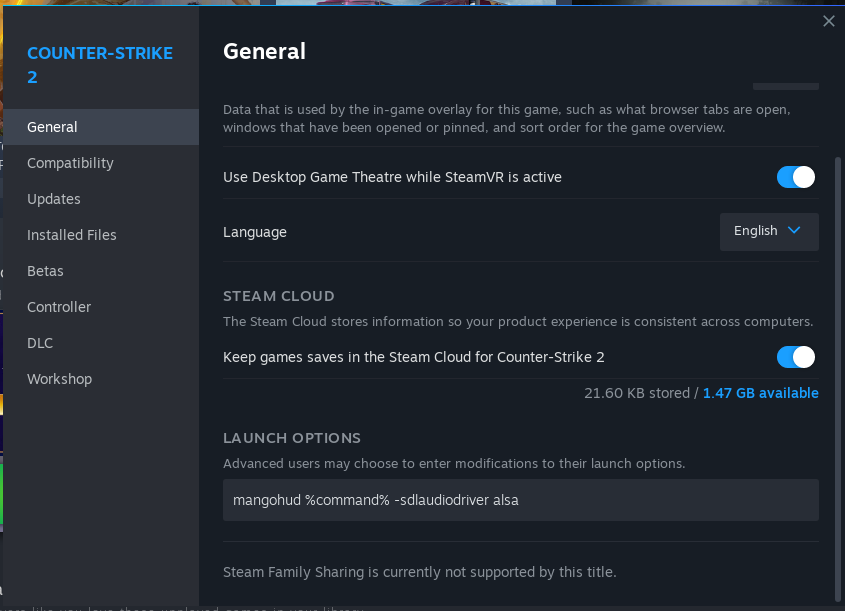Update: This issue also seems to affect Windows users. It looks like CS2 is requesting a sample rate of 44100 Hz and just assumes it got it even when it doesn't. So if your audio device is operating at 48000 Hz or higher you are going to get a sound delay after a while. The higher the operating rate, the sooner the problem will be noticeable. As a workaround for now you can set your default pipewire sample rate to 44100 as shown below. Windows users can probably do the same thing in their advanced sound settings
To force pipewire to use 44100, create the file ~/.config/pipewire/pipewire.conf.d/force44100.conf with the contents
context.properties = {
default.clock.rate = 44100
default.clock.allowed-rates = [ 44100 ]
}You will need to restart your pipewire daemon after creating this file, and might need to create the pipewire.conf.d directory too.
Valve has finally released CS2, and the Linux version was also available from day 1 which is great news. For most people it works very well. There are obviously going to be bugs and stuff that is just different to CS:GO, but most of the issues people are having affect Windows players too. Overall the Linux release of CS2 is excellent.
For me it worked perfectly from the start, but after an update to change the default audio output to pulseaudio I started to get delayed / out of sync audio which got worse with every round played. This seems to be something to do with SDL3 and they are working to fix it, but until then you can go back to using ALSA output instead which doesn't suffer from the audio delay problem.
To use ALSA just add the -sdlaudiodriver option to your Counter-Strike 2 launch options in Steam so you have something like:
%command% -sdlaudiodriver alsaedit: After todays update you need to use the AUDIODEV environment variable too since CS2 forces the pulseaudio alsa module
You can do that with
AUDIODEV="hw:0" %command% -sdlaudiodriver alsaChange hw:0 with whatever your card is.

Other options you can use are pulseaudio (which is the default), pipewire, or jack (assuming you have the required libraries installed).
While the ALSA driver does fix the delayed audio problem, it has a downside for some users in that CS2 takes exclusive access of your soundcard so you can't use Discord or TeamSpeak at the same time. If you have a card which supports hardware mixing you might not have this problem. You can also set up the ALSA dmix plugin to do software mixing but this will only work if CS2 is updated to not take exclusive access of the sound device.
